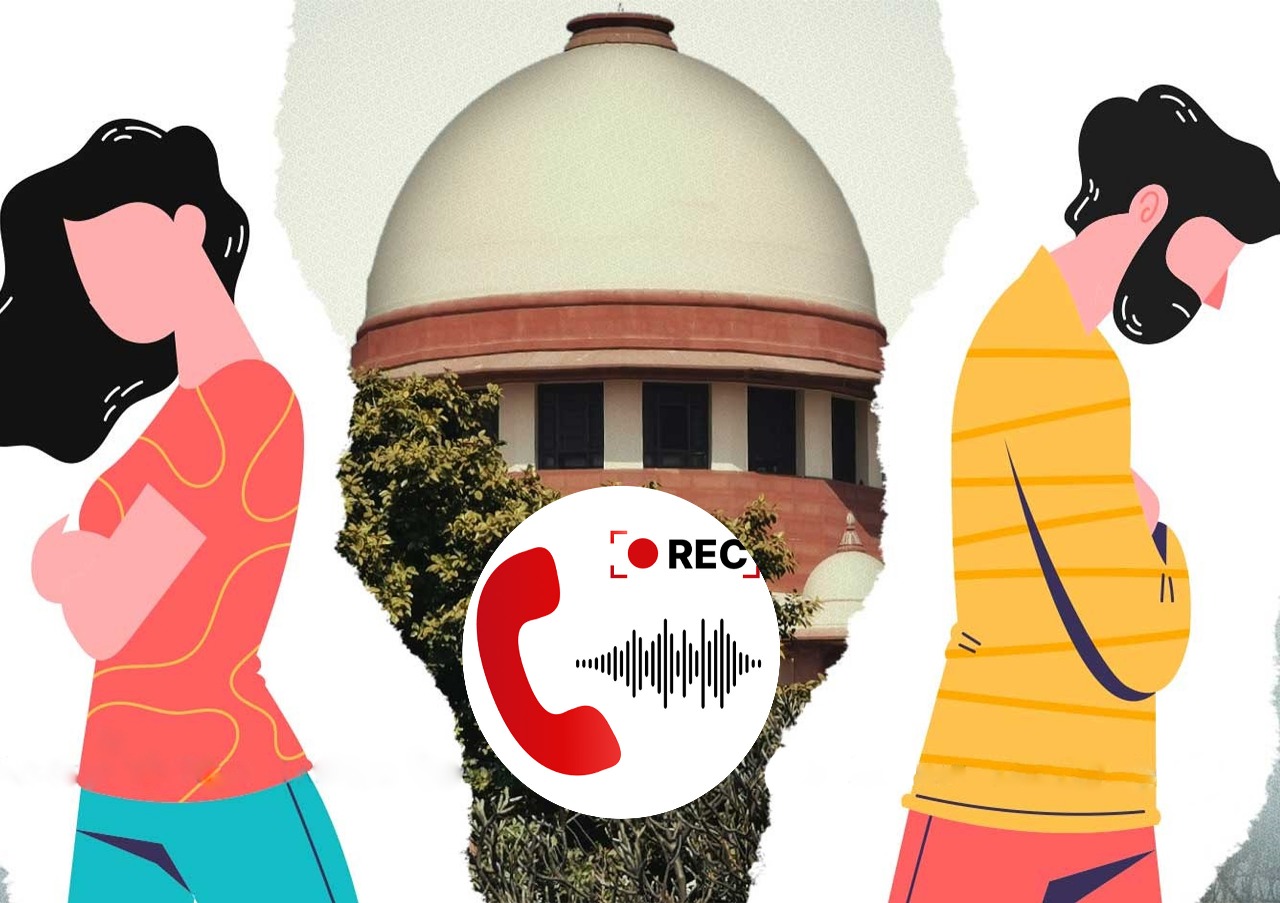
By Sulagna Halder
New Delhi:
In a significant ruling that could influence the evidentiary standards in matrimonial disputes, the Supreme Court on Monday set aside a Punjab and Haryana High Court judgment and held that secretly recorded telephonic conversations between spouses are admissible in evidence during divorce proceedings.
The verdict was delivered by a two judge bench comprising Justice B.V. Nagarathna and Justice Satish Chandra Sharma, who overturned the High Court’s earlier ruling which had described such recordings as a “clear breach” of a spouse’s fundamental right to privacy. The Supreme Court clarified that such evidence, if relevant to the case, can be admitted in Family Court proceedings under the Indian Evidence Act and the Family Courts Act.
The bench noted that while concerns had been raised about such evidence promoting mistrust and undermining domestic harmony, these concerns could not override the need for truth and fairness in a court of law.
“Some arguments have been made that permitting such an evidence would jeopardise domestic harmony and matrimonial relationships as it would encourage snooping on the spouses, therefore, infringing the objective of section 122 of the Evidence Act.
We don't think such an argument is tenable. If the marriage has reached a stage where spouses are actively snooping on each other, that is in itself a symptom of a broken relationship and denotes a lack of trust between them," the Court observed.
The case, titled Vibhor Garg v. Neha (SLP(C) No. 21195/2021), arose from a divorce proceeding initiated under Section 13 of the Hindu Marriage Act, 1955. The petitioner husband had presented a compact disc containing recorded telephonic conversations with his wife to substantiate his claims of cruelty. The Family Court in Bathinda accepted the recordings as admissible. However, the wife challenged this in the Punjab and Haryana High Court, which ruled in her favour, stating that the recordings, made without her consent, infringed upon her right to privacy and were therefore inadmissible.
The High Court had argued that it was not possible to ascertain the context in which the conversations took place, especially since they were recorded without the knowledge of the person being recorded. It relied on precedents including Deepinder Singh Mann v. Ranjit Kaur and Rayala M. Bhuvaneswari v. Napaphander Rayala, to support the view that such recordings amounted to a violation of privacy.
However, before the Supreme Court, the petitioner argued that the right to privacy, though fundamental, is not absolute. Advocate on Record Ankit Swarup, appearing for the husband, submitted that the exceptions under Section 122 of the Indian Evidence Act, 1872, permit the disclosure of communication between spouses in legal proceedings such as divorce. He further contended that in matrimonial cases involving mental cruelty, such recordings might be the only available proof, as these incidents often occur in private without any independent witnesses.
The petitioner also relied on Sections 14 and 20 of the Family Courts Act, 1984, which allow family courts to adopt a more flexible approach towards the admissibility of evidence in the interest of justice and truth. The recorded conversations, the petitioner argued, were not invasive in nature but aimed to recreate incidents of mental cruelty to support his plea for divorce.
The Supreme Court’s ruling thus acknowledges the role of technology in modern litigation, while underscoring that courts must remain vigilant about the authenticity and context of electronic evidence. While cautioning against indiscriminate use of such recordings, the Court made it clear that relevant and probative electronic evidence cannot be excluded solely on privacy grounds if it serves to establish facts crucial to the outcome of a case.
This decision is likely to have far reaching implications in matrimonial law, particularly in cases where one spouse alleges cruelty or emotional abuse and lacks direct witnesses.